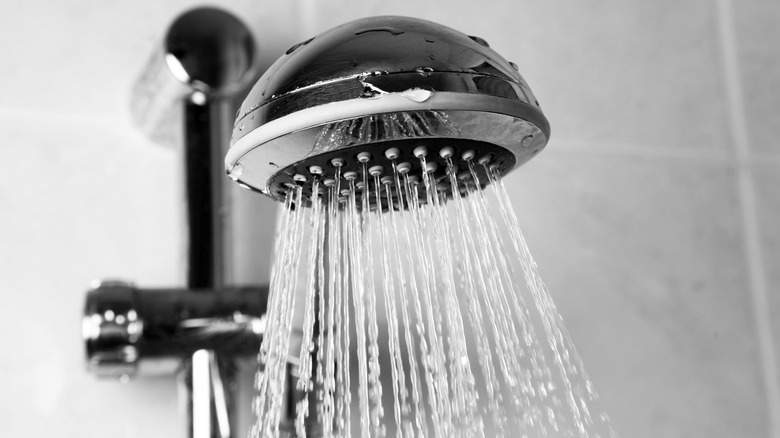The Real Reason You Should Flush Your Water Heater Once A Year
There are some aspects of maintaining a home that you may not consider until you notice the problem. Most notably, your water heater is an appliance that keeps your water hot when showering — in turn, keeping you happy. However, if you notice a cold shower or a pool of water surrounding your water heater, you'd be anything but delighted. If your water heater breaks down, replacing it can be costly. "Fortunately, there are steps people can take to minimize the risk of a water heater causing damage to their home or business. The first thing people need to do is regularly inspect the water heater and the pipes around the unit for any signs of leakage, moisture, mold, mineral buildup, and corrosion," said President of Hudson Douglas Public Adjusters Douglas Waldie to Consumer Affairs.
It's important to note that the price can vary depending on the type of water heater installed, per Fixr, although most homeowners pay around $1,000 for a 50-gallon water heater. In 2021, the average price to install a water heater was $600 to $1,500 across the country; however, it can go as high as $10,000 for a tankless solar-powered version. While models with a tank can generally last eight to 12 years, tankless water heaters can hold out for up to an astonishing 20 years, which is really something (via HomeAdvisor). Flushing them at least once a year should be a top priority to sustain their longevity. Here's why you'll want to do so.
Flushing your water heater annually has benefits
Bob Hamilton compared getting your water heater serviced to car maintenance, which can significantly impact your water heater's lifespan. The company notes that your water heater's function can be affected by sediment that can be found at the bottom of your heater as the main culprit behind a faulty system and the reason why your showers may not be as hot.
HVAC contractor Lance Marques of Swezey Fuel Co. tells This Old House, "There are several easy and inexpensive ways to increase a water heater's operating efficiency and longevity. Some things — adding insulation and setting the temperature — have to be done only once. Others, such as flushing the tank and checking the anode rod, should be done annually."
Mr. Plumber Atlanta notes that there can be more issues than less enjoyable showers, including higher energy bills, a rusted-out water heater that can lead to severe leaks, and the worst possible outcome: water damage. Since a typical water heater holds between 50 to 80 gallons, this would be spilled inside your home, causing plenty of water damage — generally costing the average homeowner about $4,444.

